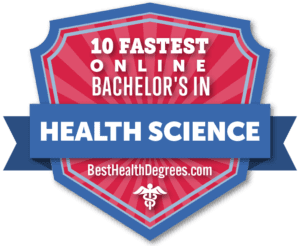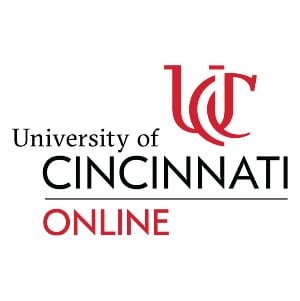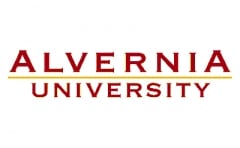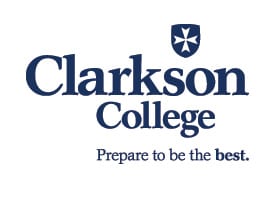
Key Takeaways:
- The University of Missouri-Columbia and University of Cincinnati Online offer leading accelerated health science degrees online.
- Online fast-track health science programs provide a quick way to earn a bachelor’s degree and begin a career.
- Accelerated health science degrees offer various specializations such as Leadership and Policy, and Pre-Professional tracks.
- The listed health science programs are fully online, ensuring flexibility while maintaining the same standards as on-campus offerings.
- Online accelerated health science degrees are ideal for those already working in healthcare or students who require a flexible study schedule.
Accelerated health science degree online programs offer a fast and flexible path for individuals to earn a bachelor’s and start a career.
Best Health Degrees has researched accredited, online undergraduate degrees in Bachelor of Science Health Sciences (BSHS) and Bachelor of Arts Health Sciences (BAHS) degrees for students, and working healthcare professionals, who want to advance their education in the Health Sciences field.
During the 2020 Coronavirus 19 pandemic, the virus placed a spotlight on healthcare and public health agency workers. In an effort to keep students safe and healthy and to slow the spread of the virus, colleges and universities switched from on-campus classes to online classes. These online programs allow students to earn the same degree that on-campus students earn and Federal Student Aid is available for qualified students.
Our Method: Ranking the 10 Fastest Online Health Science Bachelor’s Degrees
To rank the 10 Fastest Online Health Science Bachelor’s degrees, Best Degrees editors researched accredited, trusted programs of all kinds. From our initial pool, we ranked programs according to price, accreditation, reputation, and salary potential, using data from IPEDS and Niche, U.S. News and World Report, and other higher education rating publications.
Hopefully, this ranking will give you a starting point in your degree search, whether you’re a first-year, transfer, or working professional student interested in an allied health career.
1. University of Missouri-Columbia

If you’re looking for a non-clinical healthcare career or preparation for an advanced degree, you may want to consider the Bachelor of Health Science degree offered through Mizzou Online. This is an attractive program, not only because it’s 100% online, but because you have a choice of health science concentrations. All four concentrations provide a solid foundation for graduate studies as well.
You can choose from the Leadership and Policy, Health and Wellness, Pre-Professional (preparation for medical, dentistry, pharmacy school or clinical research, etc.), or Rehabilitation Science (pre-occupational or physical therapy, and more) concentrations.
Core coursework includes studies in Public Health Principles, Practice, and Education, Introduction to The Research Process and Evidence Base, Health Care in the United States, Clinical Ethics, and Capstone Project. The degree requires 120 credit hours for completion.
Fast Fact: Established in 1839, Mizzou is the first public university west of the Mississippi
Degree Awarded: BHS
Click to learn more about the bachelor’s in health science degree!
2. University of Cincinnati Online

This online Bachelor of Science in Health Sciences degree completion program is specifically for pre-occupational therapy students. If you’re currently working as an OTA and want to advance your education to become an Occupational Therapist, this degree is worth exploring.
To apply, you must have an associate degree from an AOTA-accredited associate degree program, a current OTA license, and a minimum 2.5 GPA. The degree can be obtained in 2 to 4 years.
The program offers a curriculum of health science topics. You’ll study physics, healthcare ethics, exercise physiology, motor learning, personal nutrition, pharmacology for health science, biomechanics, kinesiology, and more. There are also capstone projects required. It takes 120 credit hours for the degree and UC Online accepts up to 68 transfer credit hours.
Fast Fact: U.S. News and World Report ranks UC as one of its “Top Public Schools,” “Best Colleges for Veterans,” and “Best Value Schools”
Degree Awarded: BSHS
Click to learn more about the bachelor’s in health science degree!
3. Alvernia University

If you’re interested in healthcare policy or becoming a health educator, the Healthcare Science online degree from Pennsylvania’s Alvernia University can be completed in 2 to 4 years with 123 credit hours. The program is interdisciplinary in its coursework and allows you flexibility in how and when you study.
This program covers the U.S. healthcare system, evidence-based healthcare principles, and analysis, health concerns across the lifespan (including economics, sociological, and psychological issues), as well as current healthcare topics and issues. The degree will give you the foundation to enter a variety of healthcare careers in administration, public health, mental health, and patient advocacy.
Admission requires you must have at least a 2.0 GPA and speak to an enrollment counselor. Additionally, you’ll complete an application, and provide academic transcripts from high school or previous college coursework, as well as other university documentation. Alvernia University Online offers multiple start dates for your convenience.
Fast Fact: AU began in 1958 as a Franciscan college and has a current enrollment of over 3,000 students.
Degree Awarded: BSHS
Click to learn more about the bachelor’s in health science degree!
4. University of South Dakota

This online Bachelor of Science in Health Science degree offers six health science concentrations to prepare you for advanced studies or a healthcare career.
Among the health science, tracks from which you can choose are Undergraduate Public Health, Undergraduate Research, Health Care Advancement Studies, Undergraduate Clinical Informatics, Pre-Professional Studies, or Health Care Studies. Depending on your career goals, you can study for career advancement in your current healthcare career, develop a foundation to pursue clinical research, or prepare for advanced graduate studies in medicine, pharmacology, chiropractic medicine, and also optometry.
The University of South Dakota participates in the National Council for State Authorization Reciprocity Agreement (NC-SARA) and may not be able to accept students from your state. Before applying for freshman admission or transfer admission, you should verify that your home state qualifies.
Fast Fact: Nich ranks the University of South Dakota #12 of its “Best Online Colleges in America”
Degree Awarded: BSHS
Click to learn more about the bachelors in health science degree!
5. West Texas A&M University

If you have a strong science background, good decision-making, and problem-solving skills, and like choices, you should look at the Health Sciences at West Texas A&M University. It’s also a good choice if you currently work in healthcare and have an associate’s degree.
This robust, online program offers eight concentrations ranging from public relations in healthcare, accounting & finance, administration, health promotion, and more. Requiring 120 credit hours for completion, core coursework in this program includes Medical Ethics, Medical Terminology, Elementary Biostatistics in Health Care Research, Introduction to Epidemiology, and more.
West Texas A&M University utilizes the Apply Texas application and you’ll need a minimum of a 2.0 GPA, ACT/SAT scores, academic transcripts, etc. for admission. Transfer admissions require a minimum of 12 credit hours from an accredited, regional institution. Transfer students also must complete the Apply Texas application.
Fast Fact: U.S. News and World Report ranks WTAMU #16 “Best Online Bachelor’s Program” and #12 “Best Online Bachelor’s Program for Veterans”
Degree Awarded: BSHS/BAHS health science degree program
Click here to learn more about this bachelor’s in health science degree!
6. Wilmington University

Wilmington University has a BS in Health Sciences you can complete in 40 courses (120 credit hours.) If you’re a transfer student, WU accepts a generous 90 credit hours from accredited schools.
Besides the general education curriculum, you’ll study core courses in science, such as anatomy and physiology, biology, genetics, etc. Additionally, you’ll take foundation classes in Social and Behavioral studies (i.e., psychology). Health Sciences required classes include studies in healthcare policy, professionalism in healthcare, legal and ethical issues, and evidence-based research. You’re also expected to complete a practicum/capstone project as well as upper division Health Science electives.
Admission requirements are straightforward and do include filing for federal financial aid.
Fast Fact: This Wilmington University is located in New Castle, Delaware, and is a Military Friendly school
Degree Awarded: BSHS
Click to learn more about the bachelor’s in health science degree!
7. Clarkson College

This is a different online degree in Health Care Business that is a completion degree if you have an associate’s degree. You’ll be able to transfer 80 credit hours to apply to the 128 credit hours required.
Known as the “Transfer Option,” this program has a concentration in management. You’ll take business courses in communications, economics, business principles, and finance. Additionally, you’ll take electives in the healthcare business such as pharmacology, anatomy, and physiology for information management, disease process, and more.
You should check your state’s eligibility before making an application. Along with an official academic transcript, you’ll need an overall 2.5 GPA and a 2.5 GPA in math and science classes. Supplemental documents are included in the application.
Fast Fact: Not to be confused with Clarkson University, Clarkson College was founded in 1888 in Omaha, Nebraska
Degree Awarded: BS
Click to learn more about the health science bachelor’s degree!
8. University of Vermont

The University of Vermont also offers a degree completion program in Health Sciences offered as a hybrid program. If you have an associate degree or one year of college and live in the Burlington, VT area, this may be a good choice.
Core coursework is 100% online and some elective courses will be held as lectures on the Burlington campus. While the website doesn’t provide specific class descriptions, the program will prepare you to work in a variety of health science fields such as health educators, research assistants, and also disease prevention specialists.
You’ll complete a school application, submit academic transcripts, and a resume for admission consideration. Start dates for this program are in the Fall or Spring semesters.
Fast Fact: The University of Vermont is ranked #95 in “Best Value Schools” and #55 in “Best Public Schools” by U.S. News and World Report
Degree Awarded: BSHS Bachelor of Science in Health Science
Click to learn more about the bachelors in health science degree!
9. Thomas Jefferson University

Thomas Jefferson University has a BS in Health Sciences completion degree tailor-made for you. This bachelor of science degree is ideal if you have a minimum of 30 credit hours from an accredited college or university.
The hybrid degree requires 120 credit hours for completion, but the school accepts up to 72 credit hours, making this an accelerated program. A BS in Health Science requires coursework in anatomy and physiology, biology, psychology, and professional studies.
You’ll need to supply academic transcripts from previous universities or colleges, a professional resume, an application, and a 2-3 page personal statement (personal goals, what you bring to the program, etc.).
Thomas Jefferson University also offers an online BS in Healthcare Management degree if your goal is to work as a healthcare administrator, healthcare financial manager, clinical director, or health program coordinator.
Fast Fact: U.S. News and World Report names Thomas Jefferson University as offering one of the “Best Online Bachelor’s Programs.”
Degree Awarded: Bachelor of Science in Health Science BSHS/BSHM Bachelor of Science in Health Management
Click to learn more about the online health science degree!
10. Nova Southeastern University

There are two specialty tracks offered in this Bachelor of Health Science (BHSc degree) degree in Healthcare Administration or Pre-Occupational Therapy (specifically for Occupational Therapy Assistants). You can choose a generalist degree if you want.
The 100% online, generalist curriculum will include studies in ethics, epidemiology, current healthcare issues, healthcare policy, conflict resolution, finance, economics, and more. You’ll be taught by a faculty with real-world experience. Specialty tracks will require specific electives, such as statistics for health care, health care delivery systems, economics, etc. for Healthcare Administration. Pre-Occupational Therapists will study anatomy, physiology, physics, and more.
Admission to the program, in general, requires 30 credit hours from an accredited college or university, at least five years of healthcare experience (as a volunteer, certification, licensure, etc.), as well as submission of academic transcripts. If you choose the Occupational Therapy track, you’ll have more specific admission requirements.
Fast Fact: Forbes included Nova Southeastern University in its “Top Colleges 2019” rankings
Degree Awarded: BHSc Bachelor’s in Health Science
Click to learn more about the accelerated health science degree!
What is a BHS Degree?
A Bachelor’s in Health Science (BHS) is an undergraduate four-year degree. Online health science degree programs have classes in behavioral science and natural science. This degree prepares individuals to work in the health science field, health services, and also health care administration.
What are the Advantages of an Accelerated Program?
The obvious answer is you’ll spend less time in school, but that’s only one part of the benefits of an accelerated program. Healthcare is a rapidly changing and fast-growing industry that values advanced education. Enrolling in an accelerated program will not only cut the time you’ll spend studying but will allow you to graduate with an advanced degree in less time than normally required.
Most undergraduate degrees require 120 credit hours, or four years, of study and graduate degrees typically run 30 credit hours or two years. In an accelerated program, you’ll be able to take graduate coursework along with your undergraduate studies. This can translate to five years of enrollment, instead of six.
Another advantage, obviously, is financial. Cutting one year off of your undergraduate/graduate degree can save you a significant amount of money in tuition. Also consider that the sooner you graduate, the sooner you’ll enter your career and earn a salary and benefits.
What if You Don’t Want a Full Bachelor’s Degree?
Four-year colleges and undergraduate degrees aren’t for everyone. While healthcare does require you to have a specific knowledge base to work in the field, you can still find employment in the allied healthcare field by certification training.
Here’s an example.
Let’s say you want to be a radiologic technician. This career requires you to prepare patients for imaging procedures. You’ll need to know about human anatomy and physiology, math, chemistry, radiology technology, etc.
There are options in how you become a “rad tech.” You can earn an undergraduate degree OR you can earn a two-year associate degree from a community college OR you can enroll in a 20-24 month certification, training program.
What are the Benefits of Certification?
Certification demonstrates that you have the skills and knowledge to meet specific standards. It also shows that you’ve passed an exam administered by the accrediting organization, the American Registry of Radiologic Technologists (ARRT), that assures education and technical quality.
Using the radiologic technician example, certification training can be useful in expanding your career. You can earn a certificate in MRI, CT-scan, X-Ray, Mammography, etc.
Certification can also impact your earnings potential. Employers look for certification in hiring and many will financially reward you for your efforts. Hospitals, health systems, long-term care facilities, and physician offices may require employees to be certified in order to maintain their accreditation.
The cost of certification training programs is significantly less than the cost of most college tuition. You can find some healthcare certification programs online. However, you may be required to physically demonstrate proficiency in a classroom setting. Training can be offered by community and technical schools, hospitals, and health systems, or healthcare agencies. Be certain to find certification programs that meet accreditation standards.
What is Allied Health?
The simple answer is an allied health professional is anyone who isn’t a doctor, nurse, or dentist. It’s estimated that approximately 60% of U.S. healthcare workers are considered allied health professionals.
Allied health professionals play critical supportive roles in a patient’s care. Examples of allied health professions include dietitians, occupational and physical therapists, paramedics, respiratory therapists, radiologic technicians, dental hygienists, and others.
Education and certification training for allied health careers typically involve studies at community colleges or training schools. The cost of certification training is significantly less than the cost of college tuition and can be completed in far less time.
A more comprehensive list of allied health careers is provided by the Association of Schools Advancing Health Professions and the US Bureau of Labor Statistics.
Will an Online Health Sciences Degree Prepare Me for an Allied Health Career?
The short answer to this question is yes. Online Bachelor of Science Health Sciences (BSHS) or Bachelor of Arts in Health Sciences (BAHS) degrees are excellent options for students wanting to enter the healthcare field. There are several benefits to earning your degree online but there are a few things you should look for when choosing a program:
- Does the program offer a specialty area you want? Many BSHS degree programs have concentrations from which you can choose, such as public health, information technology, healthcare administration, etc. If you’re not certain of a specialty yet, most programs have a general study in Health Sciences option. Many programs will also include certification classes embedded in the curriculum.
- Is the program accredited? Colleges and universities should hold accreditation from a regional accrediting agency. Examples are the Higher Learning Commission (HLC), New England Commission of Higher Education (NECHE), Southern Association of Colleges and Schools (SACS), and others. Accreditation assures you that the school meets certain educational standards.
- Schools offering online degrees are frequently members of the National Council for State Authorization Reciprocity Agreements (NC-SARA). This state agreement maintains educational standards for distance education across the country. Some schools may not be able to accept students from all states, so you’ll want to check that your state qualifies.
Online degrees offer the same educational curriculum, taught by the same faculty, that on-campus BSHS/BAHS students receive. If the curriculum requires labs or internships, schools will typically offer virtual labs and internships in your home community.
Enrolling in an online degree program is a great option for working students and professionals.
Related: